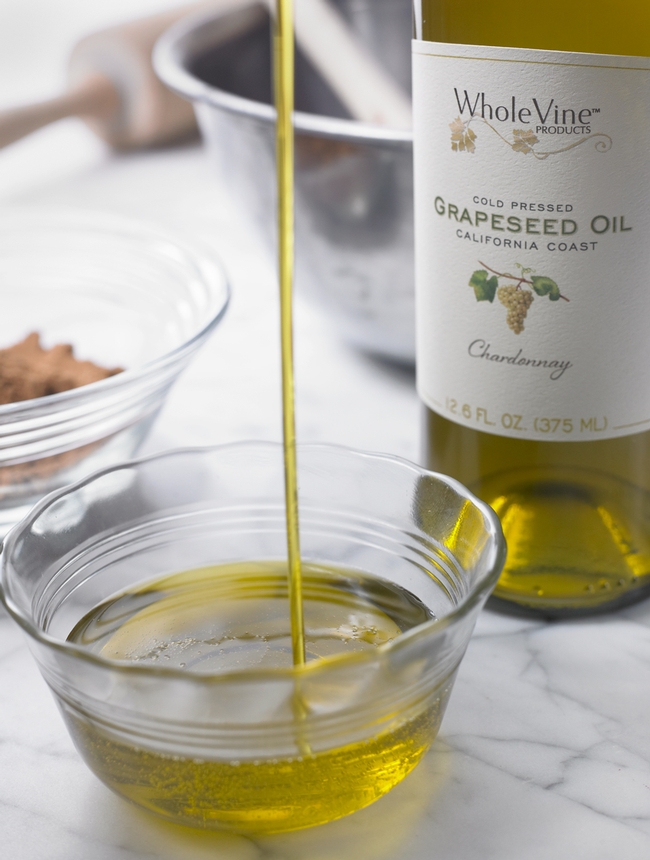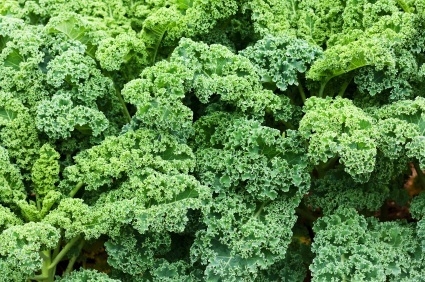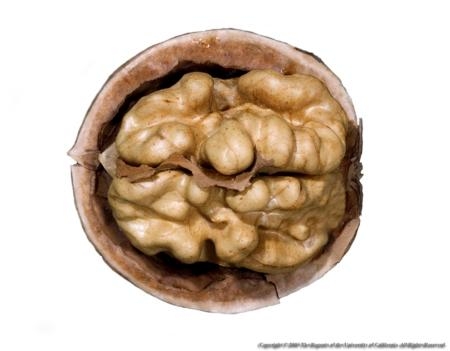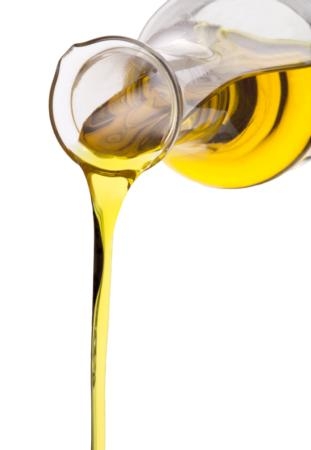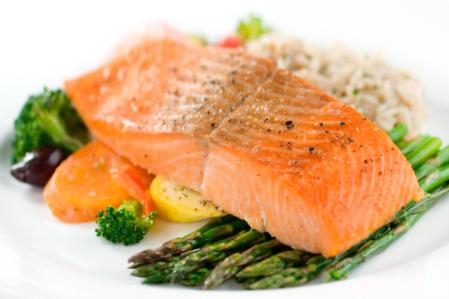Posts Tagged: oil
Food bloggers see innovative olive oil production system in Capay Valley
More than 400 food writers have converged in Sacramento for the first International Food Bloggers Conference to be held in the California capital. The event began with an excursion for about 45 of the foodies to Capay Valley Ranches, where the focus was on production of premium extra virgin olive oil.
The writers heard about innovations in olive oil production that have allowed California producers to minimize labor costs and maximize yield and quality by establishing super-high-density orchards. Farm manager Joe Armstrong led a farm tour, explaining amendments that had to be added to the soil before planting, the configuration of the trees in hedgerows and an irrigation system that permits application of water to the trees exactly when it is needed.
A graduate of California Polytechnic State University, San Luis Obispo, Armstrong said he choose a career in agriculture precisely because of the new technologies that make the field more efficient and productive.
"That's why I have a passion for farming," Armstrong said.
Ranch owner Chris Steele, who has farmed in Capay Valley his entire life, recognized how such innovations are brought to the farm.
"We couldn't do this without the UC system," he said.
UC Cooperative Extension advisors and specialists have worked alongside farmers to adapt the new super-high-density orchard systems. The idea was conceived in Spain and introduced into California in the 1990s. Successful use of high-density olive farming requires careful variety selection; finessed pruning, fertilization and irrigation practices; and understanding the cost-and-return for adept decision-making. This month, UCCE scientists released a new cost-and-return study specifically for farmers to use when planning new olive orchards under the super-high-density planting configuration.
Students' olive-oil fraud buster wins international prize
The award was presented to the Aggie inventors during the finals of the three-day global iGEM (International Genetically Engineered Machines) competition in Boston. The competition, this year featuring 245 teams from Asia, Europe, Latin America and North America, challenges student teams to design and build biological systems or machines and present their inventions in the international competition.
The students had spent several months designing and building the palm-sized biosensor, which they dubbed OliView. The biosensor is equipped to quickly and easily evaluate the chemical profile of oil, providing producers, distributors, retailers and ultimately consumers with an effective, inexpensive way to ensure olive oil quality.
Verifying olive oil quality is a concern for consumers – many of whom are willing to pay higher prices for the health benefits and flavor of true, extra-virgin olive oil. And honest olive oil producers want to prevent other producers from passing off sub-par olive oil as the real deal, while retailers, distributors and producers want a quick, easy way to ensure olive oil quality.
In addition helping detect fraudulent olive oil, the students' new biosensor will also monitor for good oil that may have gone rancid with age.
The team of undergraduate students included Lucas Murray, Brian Tamsut, James Lucas, Sarah Ritz, Aaron Cohen and Simon Staley, with Yeonju Song serving as the “shadow” or alternate team member. You can tune into Aaron Cohen's recent Nov. 6 Science Friday interview during a discussion of synthetic biology.
The full story and a brief video about the new olive-oil biosensor and this stellar team of young inventors are available at: http://news.ucdavis.edu/search/news_detail.lasso?id=11076.
Reports on olive-oil quality are available at the web site of the UC Davis Olive Center at: http://olivecenter.ucdavis.edu/research/reports.
Consumers need more information on olive oil
Olive oil is repeatedly in the news these days, but the stories often raise as many questions as they anwer:
- It’s touted as the “healthy oil." Does that hold true for cooking and eating raw?
- It adds a range of flavors to food. Just what is EVOO and should you pay more for it?
- You can choose “grassy” or “peppery” olive oil. But what does that mean?
- How can you tell if olive oils are adulterated with lesser-grade oils, or oils from entirely different plants?
A new survey, spearheaded by Dr. Selina Wang at the Olive Center at UC Davis, shows that consumers need more information about olive oil in order to make informed decisions. Consumers were asked a number of questions about olive oil. Surprisingly — or maybe not — consumers thought they know more about olive oil than they actually do. Many consumers aren’t savvy about cooking with olive oil or assessing its tastes and qualities.
Results of the survey indicate that “there are opportunities for producers to modify marketing practices to assist consumers in making better informed olive oil purchasing decisions.”
Reading the survey results will provide consumers with a lot of information about olive oil’s attributes and will help consumers make better purchasing choices.
More information about the survey:
- Read the UC Davis press release about the survey
- Read the full survey results
- UC Davis Olive Center
Other recent olive oil news stories:
- Olive oil ‘fridge test’ doesn’t reliably detect fraud, March 2013
- New olive oil testing program aims to boost quality and reliability, January 2013
How waste becomes gourmet food
I attended the Fancy Food Show in San Francisco in January and I was delighted with the offerings from local companies near UC Davis. Since I attended this vast international exhibit, I have purchased several local products that I discovered at the show. The exhibit was so large, I was only able to see half of it in a day. I met Matthieu Kohlmeyer, the French CEO and General Manager of La Tourangelle, whose walnut oils are processed 15 minutes away in Woodland.
I was also impressed with Mezzetta pasta sauces from Napa. I have purchased their olives and fire-roasted peppers for years, so why did I fail to notice their pasta sauce among the endless brands on the shelves? Unfortunately, my favorite in their line, Puttanesca, was not on the shelf at my grocer, but I found the spicy Arrabbiata, my second favorite tasting at the show.
As I looked for the locals I looked in vain for a local grape seed oil. The Italians were selling grape seed oil at wholesale prices that were surprisingly low. Meanwhile, I knew that grape seeds in our nearby wine regions are still largely treated as waste, just as UC Davis olives were treated before our former grounds manager Sal Genito partnered with a local olive oil company to launch a gourmet brand of oil at UC Davis.
To my delight, Sacramento Bee Food & Wine writer Chris Macias featured WholeVine grape seed oil on the March 14 food page. Its parent company is a successful local start-up, SonomaCeuticals, Santa Rosa, who developed the process to extract the oil from local grapes.
Not surprisingly, UC Davis was involved. Sharon Shoemaker, director of the UC Davis' California Institute of Food and Agricultural Research (CIFAR), was interviewed about her role in helping SonomaCeuticals tap into campus expertise. WholeVine grape seed oil is cold pressed, allowing it to retain the natural flavors of chardonnay, zinfandel, reisling and other winegrape seeds. The flavor provides an added bonus to a naturally high smoke point and health benefits. This commands a higher price than imported oils and allows the firm to compete in this market.
Shoemaker and her program CIFAR (see-far) are champions of campus research. Since 1992, her dynamic energy has been sustained through private enterprises that pay for her business-friendly conferences and services to benefit small and large concerns. Rarely does the public see how often executives drop in to tap into UC Davis resources. This happens behind the scenes with little fanfare, except this time, when the nuances of a new product triumph came to light on the food page. All of us can now enjoy the benefits.
New findings on benefits of “biofactors” in food
Can what we eat help fix what ails us? Research increasingly suggests the answer is “yes.” Many foods contain biofactors — biologically active compounds — that may prevent and treat illnesses including asthma, diabetes and heart disease, according to new studies from the UC Davis Center for Health and Nutrition Research (CHNR).
The upcoming July-September California Agriculture journal (to be posted by July 11) reports UC research into plant compounds (phytochemicals) that can help prevent or treat disease. The findings stem from pilot projects at the center, as well as other UC research. Articles focus on how micronutrients, biofactors and phytochemicals (plant compounds) can help reduce the risk of chronic diseases.
Biofactors are compounds in our food that affect us at the biochemical level and may ultimately benefit our health. For example, the omega-3 fatty acids in foods such as walnuts, flax seeds, kale and salmon may protect against a range of diseases associated with inflammation, including asthma and the hypertension-related inflammation that can damage kidneys. CHNR research suggests that omega-3 fatty acids could reduce asthma symptoms as well as kidney damage.
Phytochemicals and health. Epidemiological studies link particular diets to less risk of chronic diseases. Notably, the traditional Mediterranean diet — mostly vegetables, fruits and whole grains, with moderate amounts of nuts, olive oil and red wine — is associated with lower rates of heart disease, cancer, and Parkinson's and Alzheimer's diseases. However, it has yet to be firmly established that specific phytochemicals in our diets can protect against diseases. Nutritionists therefore advise eating a wide variety of plant-based foods rather than taking supplements.
That said, a number of phytochemicals do show promise in protecting against and even treating chronic diseases. For example, research shows that soybeans contain estrogen-like compounds called isoflavones that may protect against heart disease, and that compounds in olive oil and red wine may protect against heart disease and diabetes.
Mitochondrial nutrients and aging. The Mediterranean diet is rich in plant compounds that boost mitochondria (organelles in our cells that convert glucose and other nutrients into energy) and so are known as mitochondrial nutrients. When mitochondria are scarce or have genetic defects that keep them from working properly, this can generate toxic metabolites and damaging free radicals.
“Mitochondria are central to aging,” says UC Irvine aging expert Edward Sharman. “Improving their function may modulate or delay the onset of diseases related to aging, such as type 2 diabetes and age-related macular degeneration.” Mitochondrial dysfunction also plays a key role in chronic illnesses such as heart disease, type 2 diabetes and inflammatory diseases such as arthritis.
One of the most promising mitochondrial nutrients is hydroxytyrosol, which is abundant in the extra-virgin olive oil that provides most of the fat in the traditional Mediterranean diet. Moreover, the red wine that is integral to the Mediterranean diet also induces the body to produce more hydroxytyrosol.
A new essential nutrient? Another promising mitochondrial nutrient is pyrroloquinoline quinone (PQQ), which was first found in nitrogen-fixing soil bacteria and is now known to be ubiquitous.
“We’re exposed to PQQ all the time at low levels,” says CHNR co-director Robert Rucker, a UC Davis nutrition professor. “It can be derived from amino acids found in stellar dust, and stellar dust is what the earth is made of.”
While Escherichia coli and other common gut bacteria do not make PQQ, the soil bacteria provide it to the plants in our diet. Good sources include fermented soybeans, wine, tea and cocoa.
Animal studies show that PQQ affects health markedly. Rucker and his colleagues found that depriving rats of PQQ compromised their immune systems, and retarded their growth and reproductive rates. In contrast, restoring PQQ to their diets reversed these effects and returned them to good health. Moreover, PQQ stimulated nerve growth and counteracted aging in cultured cells.
Rucker and his colleagues found that, like hydroxytyrosol, PQQ increases the number of mitochondria in cells. “It’s also an extremely good antioxidant and anti-inflammatory agent,” he says.
Personalized medicine. Understanding what biofactors do in our bodies could ultimately lead to personalized medicine, where nutrition-based treatments are tailored to the particulars of each person’s biochemistry. This individual variation at the biochemical level may help explain the inconsistent outcomes of research on omega-3 fatty acids and inflammation.
“The studies are mixed,” says UC Davis pulmonologist Nicolas Kenyon. “Some have shown little effect and others have shown that omega-3 fatty acids can reduce arthritis and inflammation in blood vessels.”
This genotyping is targeted to DNA sequences associated with asthma and so is not comprehensive.
“Some people are nervous about genome-wide analysis, which is scary because none of us is perfect,” Kenyon says. “But people are more interested when the focus is specific screening that could increase their chances of treatment.”








